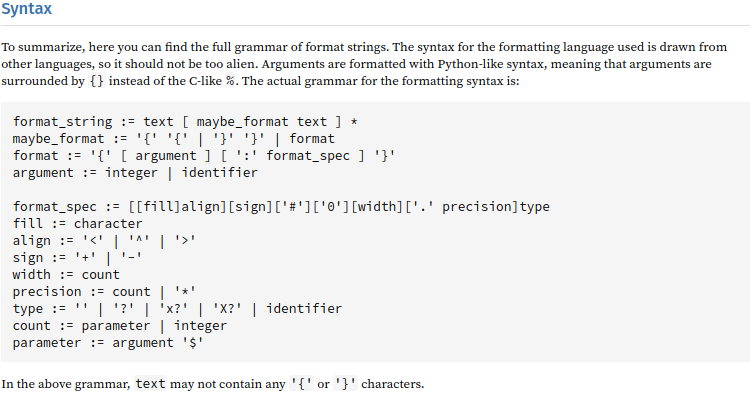Force token collection to run when parsing nonterminals
Fixes#81007
Previously, we would fail to collect tokens in the proper place when
only builtin attributes were present. As a result, we would end up with
attribute tokens in the collected `TokenStream`, leading to duplication
when we attempted to prepend the attributes from the AST node.
We now explicitly track when token collection must be performed due to
nomterminal parsing.
Fix ICE in mir when evaluating SizeOf on unsized type
Not quite ready yet. This tries to fix#80742 as discussed on [Zulip topic][1],
by using `delay_span_bug`.
I don't understand what `delay_span_bug` does. It seems like my error message
is never used. With this patch, in this program:
```rust
#![allow(incomplete_features)]
#![feature(const_evaluatable_checked)]
#![feature(const_generics)]
use std::fmt::Debug;
use std::marker::PhantomData;
use std::mem::size_of;
struct Inline<T>
where
[u8; size_of::<T>() + 1]: ,
{
_phantom: PhantomData<T>,
buf: [u8; size_of::<T>() + 1],
}
impl<T> Inline<T>
where
[u8; size_of::<T>() + 1]: ,
{
pub fn new(val: T) -> Inline<T> {
todo!()
}
}
fn main() {
let dst = Inline::<dyn Debug>::new(0); // line 27
}
```
these errors are printed, both for line 27 (annotated line above):
- "no function or associated item named `new` found for struct `Inline<dyn
Debug>` in the current scope"
- "the size for values of type `dyn Debug` cannot be known at compilation time"
Second error makes sense, but I'm not sure about the first one and why it's
even printed.
Finally, I'm not sure about the span passing in `const_eval`.
[1]: https://rust-lang.zulipchat.com/#narrow/stream/269128-miri/topic/Help.20fixing.20.2380742
Fix broken links with `--document-private-items` in the standard library
As it was suggested in #81037 `SpecFromIter` is not
in the scope and therefore we get a warning when we try to
do document private intems in `rust/library/alloc/`.
This addresses #81037 by adding the trait in the scope as ```@jyn514```
suggested and also adding an `allow(unused_imports)` flag so that
the compiler does not complain, Since the trait is not used
per se in the code, it's just needed to have properly documented
docs.
Improve grammar in documentation of format strings
The docs previously were
* using some weird `<` and `>` around some nonterminals
* _correct me if these **did** have any meaning_
* using of a (not explicitly defined) `text` nonterminal that didn’t explicitly disallow productions containing `'{'` or `'}'`
* incorrect in not allowing for `x?` and `X?` productions of `type`
* unnecessarily ambiguous, both
* allowing `type` to be `''`, and
* using an optional `[type]`
* using inconsistent underscore/hyphenation style between `format_string` and `format_spec` vs `maybe-format`
_Rendered:_

_(current docs: https://doc.rust-lang.org/nightly/std/fmt/#syntax)_
```@rustbot``` modify labels: T-doc
Add regression test for mutual recursion in obligation forest
Add regression test for #75860 with a slightly smaller example.
I was looking at what caused the issue and was surprised when it errors out on nightly, so I just added a regression test which should effectively close the issue, altho it would be nice to find the fix for reference.
Also I found that 80066 is not fixed by whatever fixed 75860.
Add Vec visualization to understand capacity
Visualize vector while differentiating between stack and heap.
Inspired by cheats.rs, as this is probably the first place beginner go,
they could understand stack and heap, length and capacity with this. Not
sure if adding this means we should add to other places too.
Superseeds #76066
r? `@m-ou-se`
cc `@the8472` I put back the order of the fields as it feels weird, the note already explains that the order of fields is not guaranteed
Deprecate-in-future the constants superceded by RFC 2700
Successor to #78335, re-opened after addressing the issues tracked in #68490.
This PR makes use of the new ability to explicitly annotate an item as triggering the deprecated-in-future lint (via `rustc_deprecated(since="TBD"`, see #78381). We might call this *soft deprecation*; unlike with deprecation, users will *not* receive warnings when compiling code that uses these items *unless* they opt-in via `#[warn(deprecated_in_future)]`. Like deprecation, soft deprecation causes documentation to formally acknowledge that an item is marked for eventual deprecation (at a non-specific point in the future).
With this new ability, we can sidestep all debate about when or on what timeframe something ought to be deprecated; as long as we can agree that something ought to be deprecated, we can receive much of the benefits of deprecation with none of the drawbacks. For these items specifically, the libs team has already agreed that they should be deprecated (see https://github.com/rust-lang/rust/issues/68490#issuecomment-747022696).
Remove flaky test
See https://github.com/rust-lang/rust/pull/81197 for what's going on
here; this is a temporary stopgap until someone has time to review the
proper fix.
r? `@ghost`
Work around missing -dev packages in solaris docker image.
This should hopefully make the `dist-various-2` docker build work again on CI, which is now blocking everything from getting merged.
r? `@pietroalbini`
Fixes#81007
Previously, we would fail to collect tokens in the proper place when
only builtin attributes were present. As a result, we would end up with
attribute tokens in the collected `TokenStream`, leading to duplication
when we attempted to prepend the attributes from the AST node.
We now explicitly track when token collection must be performed due to
nomterminal parsing.
Visualize vector while differentiating between stack and heap.
Inspired by cheats.rs, as this is probably the first place beginner go,
they could understand stack and heap, length and capacity with this. Not
sure if adding this means we should add to other places too.
Superseeds #76066
Add JsonDocCk Tool for rustdoc-json
Implements a new test system for rustdoc JSON output, jsondocck. Modeled after htmldocck, this tool reads directives in the test file and checks them against the output. These directives use JSONPath, a pair to XPath for json. This obsoletes the old strict subset tool, allowing both finer-grained control of what is tested and better errors on failure.
Not sure on the changes to Cargo.lock, I can back that out if needed.
r? `@jyn514`